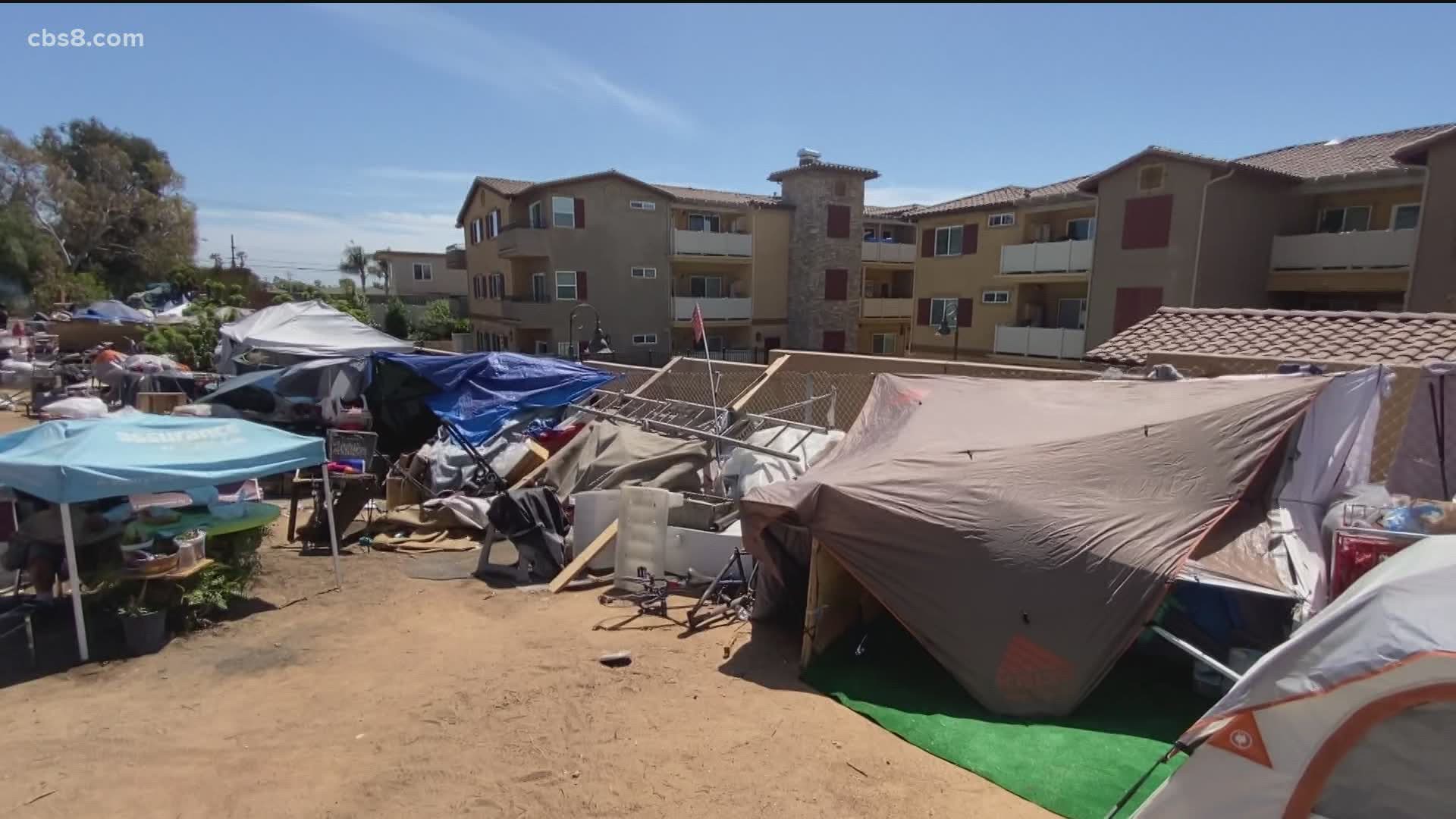NATIONAL CITY, Calif. — Along the 16th Street bridge in National City above the 805 South freeway is a homeless encampment visible beyond an open fence. Those who live nearby call it a growing nuisance, and National City leaders say their hands have been tied with how much they can do while in a pandemic.
Giving a walk through to where he lives, Junior Bautista showed News 8 an open grill among rows of grocery carts filled with clothes and shoes.
“This is our kitchen area where we actually all come together, dine and eat,” Bautista said.
Bautista said if one person gets some food for the day, everyone in the group tries to share it.
"We really don't want to be here, housing would be nice, and we all had homes at one point, and I feel like we deserve the same treatment as we did before,” Bautista said.
Drone video shows just how widespread the encampment is in National City with tent after tent and trash bags.
"People drive through our city, and this is what they see, and they think that is National City, and they don't realize that it is state property,” said longtime National City councilman Ron Morrison.
Morrison said the city has done cleanups and removed heaps of furniture blocking the sidewalk, but due to the pandemic, he said Caltrans hasn't cleared out the area as in the past.
Below is a statement from Caltrans spokesperson Hayden Manning to News 8:
"Caltrans takes the health and safety of people experiencing homelessness very seriously and is monitoring and following all recommendations from the Centers for Disease Control, California Department of Public Health, CalHR and others. Consistent with CDC guidance to prevent community spread of COVID-19, Caltrans is proceeding with encampment cleanups if there is an immediate safety concern or threat to critical infrastructure. Caltrans continues to work with local agencies to provide resources for safer living situations as available in an effort to keep the individuals and the freeways safe."
“There doesn't seem to be near enough as much enforcement, I don't see too much of this up near around La Jolla or Rancho Bernardo or anywhere," Morrison said.
Residents and management of the nearby Bella Vita Apartments have complained of the homeless using their pool, stealing their power and hopping over the barrier to use their showers. A manager, who did not wish to be named, said residents will get knocks on their doors from transients wanting to use their shower, and that this activity has been occurring since March 2020.
Bautista said he understands how having the view of the tents from the luxury apartments can be an eyesore, but added, “we try to keep underneath the wall and the fence to where they can't see us."
National City Mayor Alejandra Sotelo-Solis said the city is working with the homeless outreach task force and regional partners to address the issue, including cleaning up the litter off the freeway before it goes into waterways.
“Recognizing that we have to meet people where they are and help them get the help because many could see themselves being one paycheck away from being there, and many people are going to be faced with challenges once the evictions moratorium is lifted. It's not illegal to be homeless, but what is illegal is dumping and illegal fires,” Sotelo-Solis said.
Bautista lives under a tarp with a blanket. The Sweetwater High School graduate, who took one business class at UEI College before dropping out said he spiraled after his mother died and ended up on the streets. He's avoided family for two years now. He said he used to work customer service jobs and would love to be an entrepreneur one day.
“This is not the lifestyle you want to live in, but we just do with what we got. I found good people here, and they helped me out, and we feel safe here,” Bautista said.
He also said he has been in desperate need for more blankets, toiletries, and a way to wash his hands while outdoors.
Sotelo Solis said residents with any concerns can make them known to the city council.
“I think we’re right at the edge of what can be done," Morrison added. "The state says you have to be able to offer them someplace to live, a bed or whatever, and a lot of the facilities are starting to open up.”

